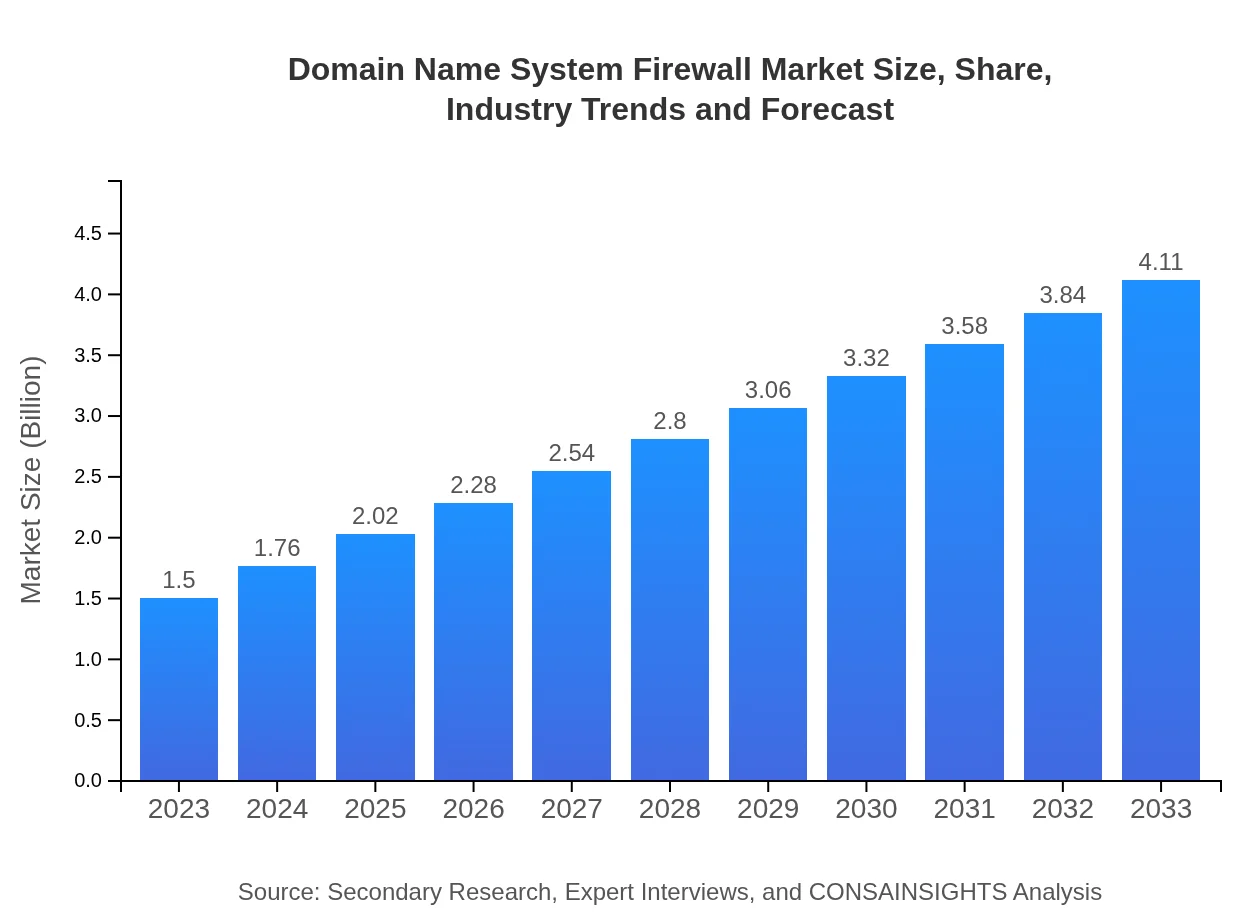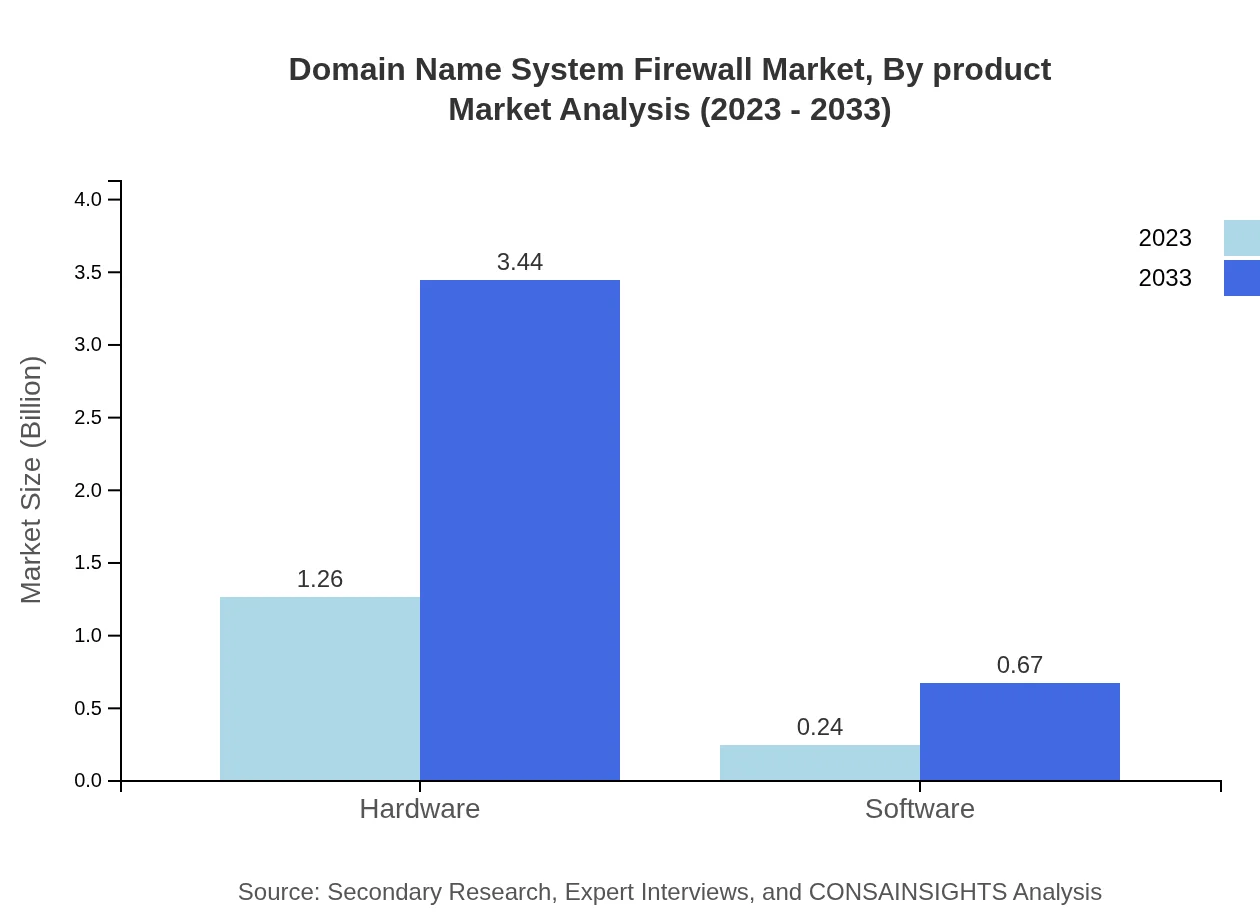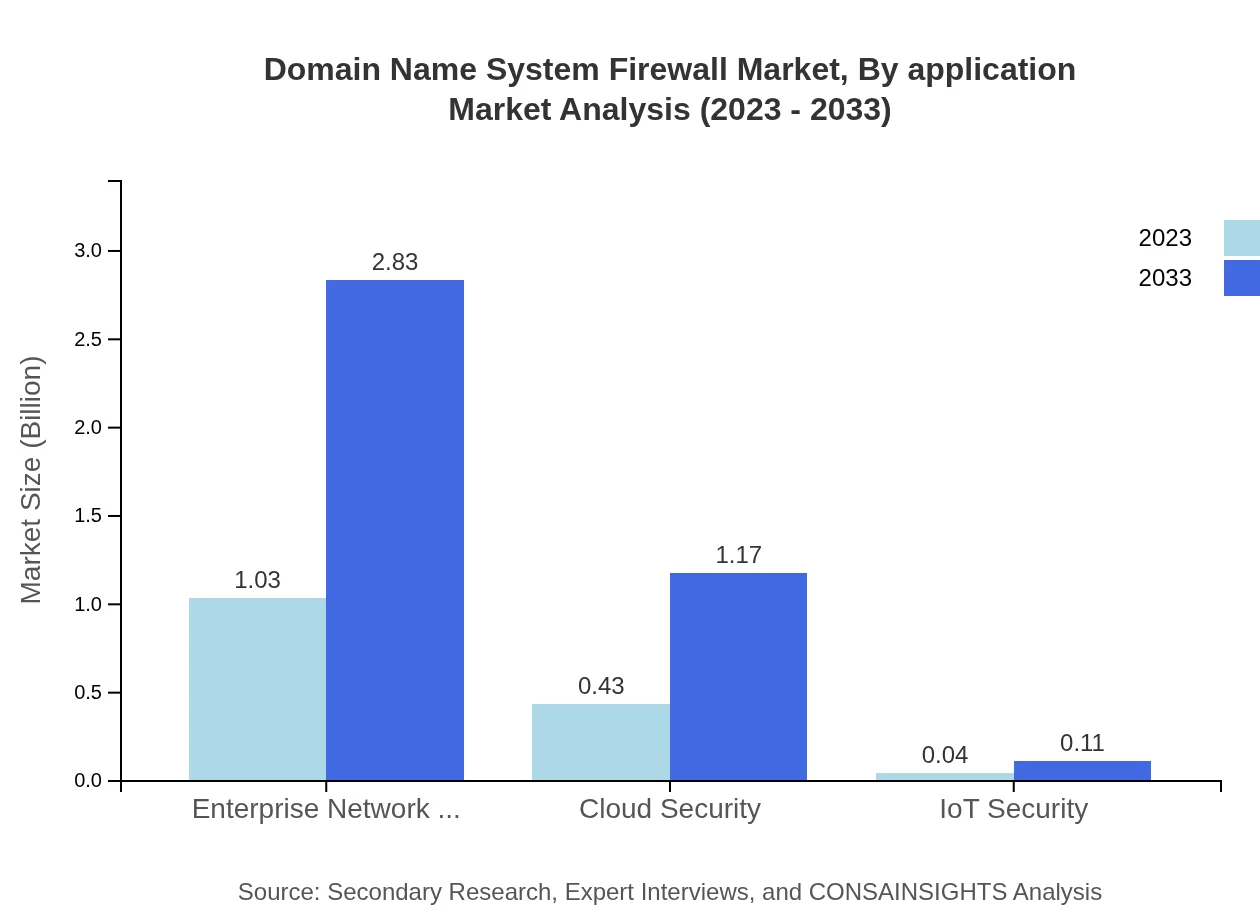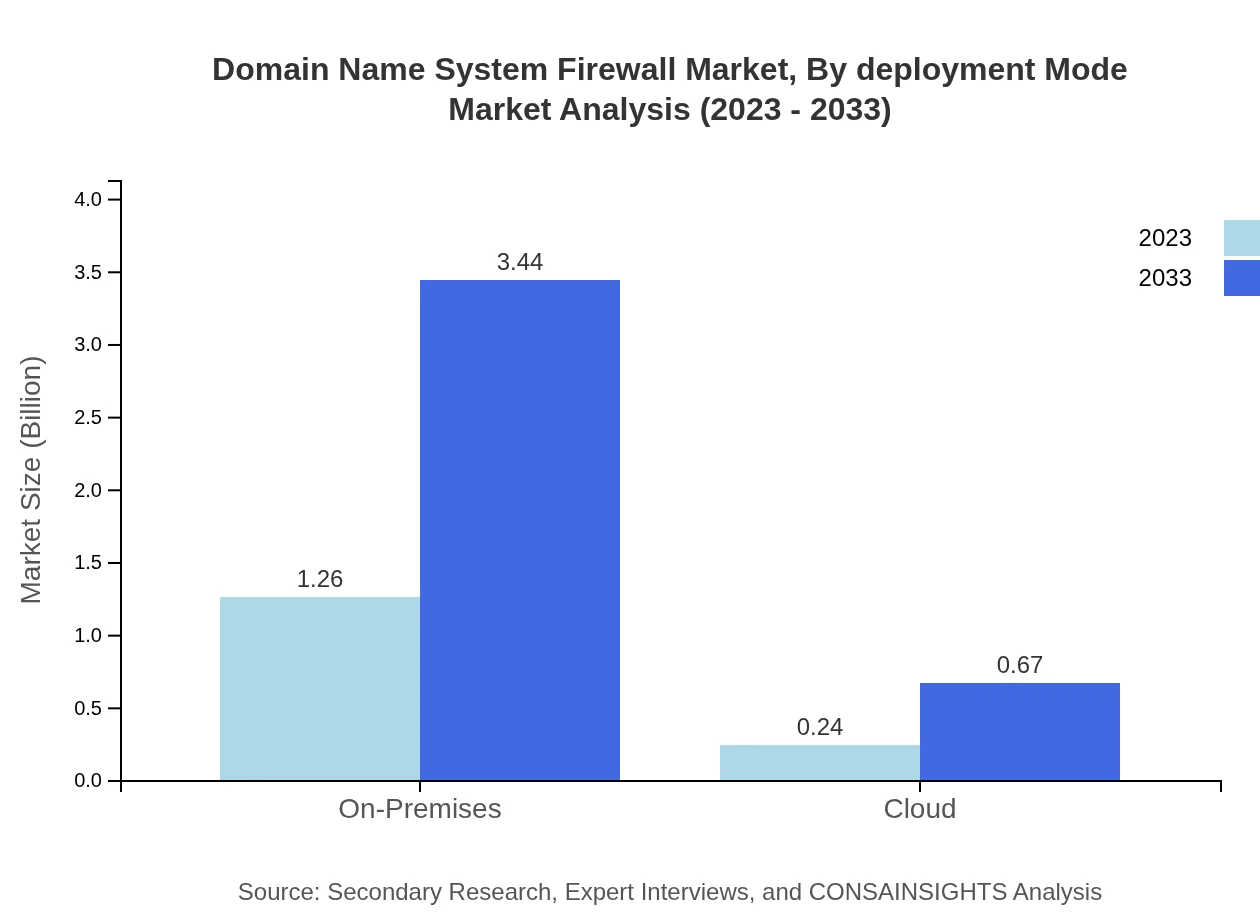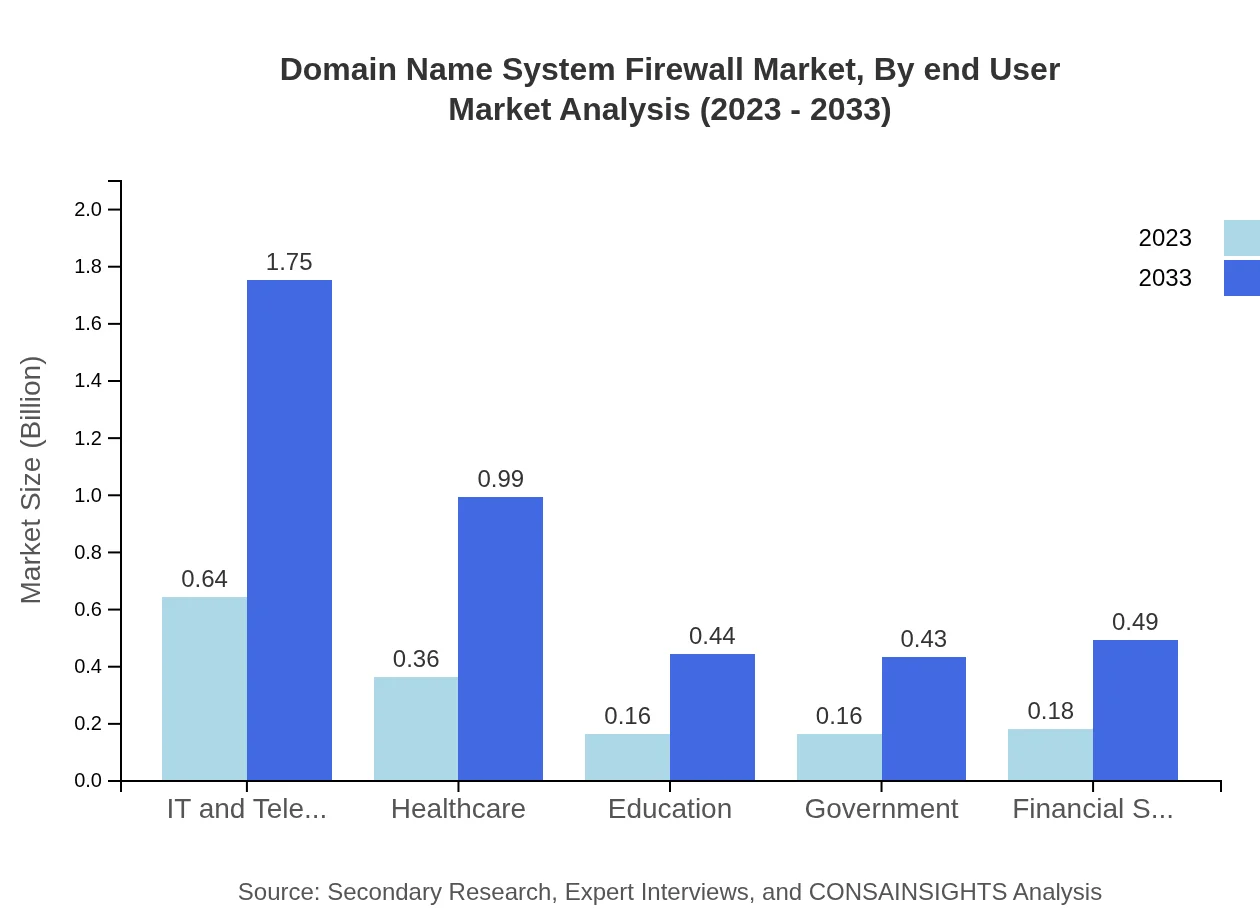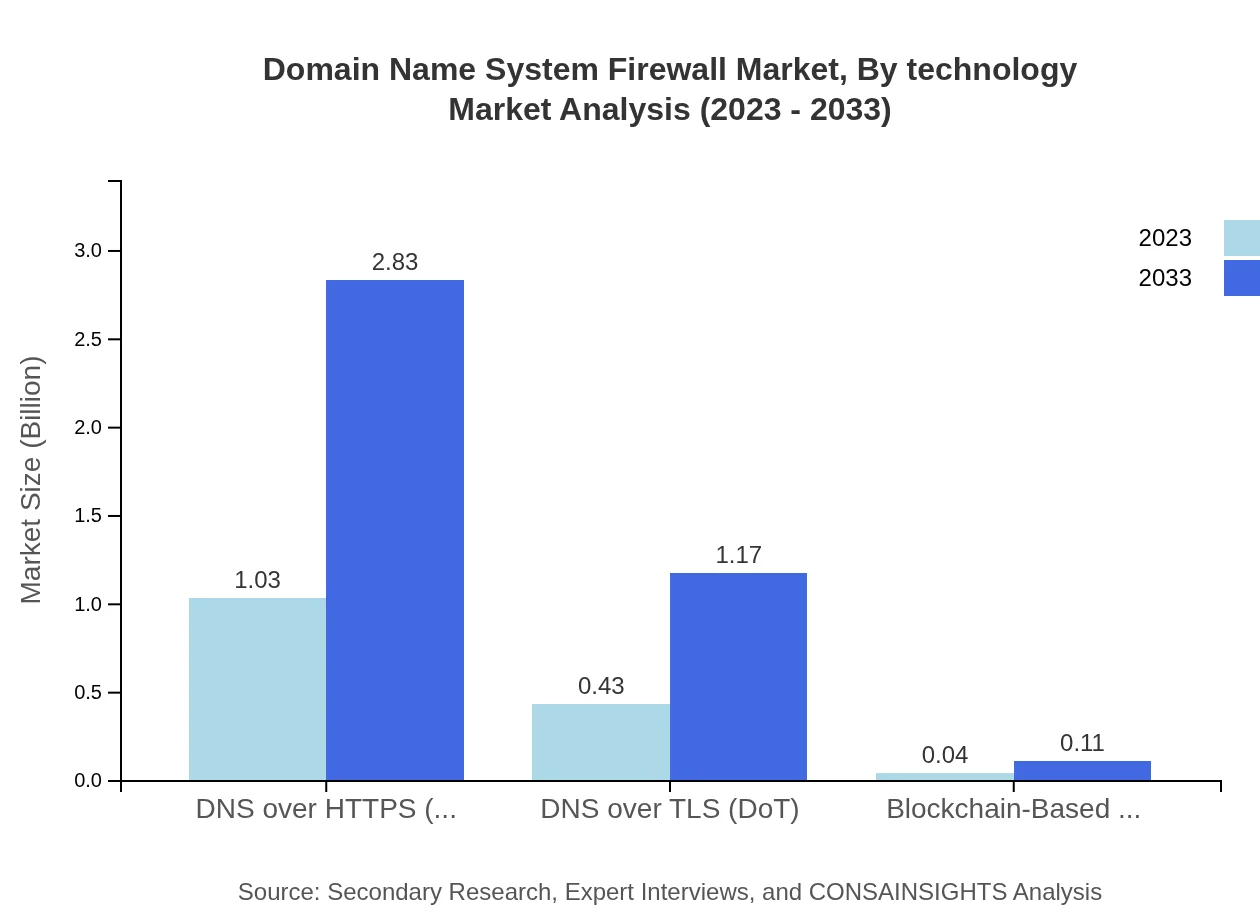Domain Name System Firewall Market Report
Published Date: 31 January 2026 | Report Code: domain-name-system-firewall
Domain Name System Firewall Market Size, Share, Industry Trends and Forecast to 2033
This report provides a comprehensive analysis of the Domain Name System Firewall market, covering market trends, size, segmentation, regional insights, key players, and future forecasts from 2023 to 2033.
| Metric | Value |
|---|---|
| Study Period | 2023 - 2033 |
| 2023 Market Size | $1.50 Billion |
| CAGR (2023-2033) | 10.2% |
| 2033 Market Size | $4.11 Billion |
| Top Companies | Cisco Systems, Inc., Cloudflare, Inc., Barracuda Networks, Inc. |
| Last Modified Date | 31 January 2026 |
Domain Name System Firewall Market Overview
Customize Domain Name System Firewall Market Report market research report
- ✔ Get in-depth analysis of Domain Name System Firewall market size, growth, and forecasts.
- ✔ Understand Domain Name System Firewall's regional dynamics and industry-specific trends.
- ✔ Identify potential applications, end-user demand, and growth segments in Domain Name System Firewall
What is the Market Size & CAGR of Domain Name System Firewall market in 2023?
Domain Name System Firewall Industry Analysis
Domain Name System Firewall Market Segmentation and Scope
Tell us your focus area and get a customized research report.
Domain Name System Firewall Market Analysis Report by Region
Europe Domain Name System Firewall Market Report:
The European market stands at $0.43 billion in 2023, with a forecasted growth to $1.18 billion by 2033. The region's strict data protection regulations and the emphasis on comprehensive cybersecurity frameworks drive the demand for DNS firewall solutions.Asia Pacific Domain Name System Firewall Market Report:
In the Asia Pacific region, the market size reached $0.32 billion in 2023, with expectations to grow to $0.87 billion by 2033. This surge can be attributed to the increasing adoption of cloud services and rising awareness about cybersecurity among enterprises, particularly in emerging economies.North America Domain Name System Firewall Market Report:
North America is the largest market for DNS firewalls, with a valuation of $0.48 billion in 2023, likely expanding to $1.32 billion by 2033. The robust IT infrastructure and high levels of cybersecurity awareness among businesses are significant contributors to this growth.South America Domain Name System Firewall Market Report:
The South American market has a smaller footprint, valued at $0.14 billion in 2023 and projected to reach $0.40 billion by 2033. The growth is driven by the increasing digitization of businesses and the adoption of advanced security measures to combat growing cyber threats.Middle East & Africa Domain Name System Firewall Market Report:
The Middle East and Africa market is valued at $0.13 billion in 2023, with expectations to grow to $0.34 billion by 2033. The increasing government focus on digital transformation initiatives and enhancing cybersecurity strategies are critical factors influencing market growth.Tell us your focus area and get a customized research report.
Domain Name System Firewall Market Analysis By Product
The market is predominantly driven by hardware solutions, which are expected to grow from $1.26 billion in 2023 to $3.44 billion in 2033, maintaining an 83.69% market share. Software products also contribute, growing from $0.24 billion to $0.67 billion, with a 16.31% market share.
Domain Name System Firewall Market Analysis By Application
In terms of applications, the IT and telecom sector leads with a size of $0.64 billion in 2023, expected to grow to $1.75 billion by 2033, capturing a 42.55% share. Healthcare and education sectors also show significant growth, driven by increasing regulatory compliance and security needs.
Domain Name System Firewall Market Analysis By Deployment Mode
The market by deployment mode shows that on-premises solutions dominate with a size of $1.26 billion in 2023, rising to $3.44 billion by 2033. Cloud-based solutions, while smaller, are also growing from $0.24 billion to $0.67 billion.
Domain Name System Firewall Market Analysis By End User
Government and financial services are critical end-user segments, with government spending increasing from $0.16 billion to $0.43 billion and financial services from $0.18 billion to $0.49 billion by 2033, reflecting a growing need for security in sensitive operations.
Domain Name System Firewall Market Analysis By Technology
Emerging technologies, particularly DNS over HTTPS (DoH) and DNS over TLS (DoT), are key drivers in the market's technological landscape, with DoH projected to grow from $1.03 billion in 2023 to $2.83 billion by 2033, showcasing its critical role in modern DNS security.
Domain Name System Firewall Market Trends and Future Forecast
Tell us your focus area and get a customized research report.
Global Market Leaders and Top Companies in Domain Name System Firewall Industry
Cisco Systems, Inc.:
Cisco is a global leader in networking and cybersecurity solutions, offering a comprehensive range of DNS firewall solutions designed to protect enterprises from cyber threats.Cloudflare, Inc.:
Cloudflare provides reliable DNS services alongside advanced security features, ensuring robust protection for clients' web infrastructure.Barracuda Networks, Inc.:
Barracuda Networks specializes in security and data protection solutions, providing innovative DNS firewall services that safeguard vital endpoints.We're grateful to work with incredible clients.









FAQs
What is the market size of domain Name System Firewall?
The Domain Name System Firewall market is valued at approximately $1.5 billion in 2023, with a projected CAGR of 10.2% from 2023 to 2033. This growth reflects increasing demand for secure networking solutions.
What are the key market players or companies in this domain Name System Firewall industry?
Key players in the Domain Name System Firewall market encompass established technology firms such as Cisco Systems, IBM, Fortinet, and Palo Alto Networks, which are known for providing robust security solutions tailored for complex networks.
What are the primary factors driving the growth in the domain Name System Firewall industry?
Growth drivers in the Domain Name System Firewall industry include rising cyber threats, demand for enhanced online security, the proliferation of IoT devices, regulatory requirements, and increased digital transformation efforts across multiple sectors.
Which region is the fastest Growing in the domain Name System Firewall?
The fastest-growing region in the Domain Name System Firewall market is Europe, projected to grow from $0.43 billion in 2023 to $1.18 billion by 2033, indicating a significant burgeoning interest in cybersecurity solutions.
Does ConsaInsights provide customized market report data for the domain Name System Firewall industry?
Yes, ConsaInsights offers tailored market reports for the Domain Name System Firewall industry, catering to specific client needs, ensuring comprehensive insights that align with unique business objectives and market requirements.
What deliverables can I expect from this domain Name System Firewall market research project?
Deliverables from our Domain Name System Firewall market research project include in-depth market analysis, trend forecasting, competitive landscape overviews, detailed segmentation reports, and actionable insights for strategic decision-making.
What are the market trends of domain Name System Firewall?
Current trends in the Domain Name System Firewall industry include a shift towards cloud-based security solutions, increased adoption of AI-driven security measures, rising implementation of DNS over HTTPS (DoH) services, and a greater focus on compliance and regulatory frameworks.

